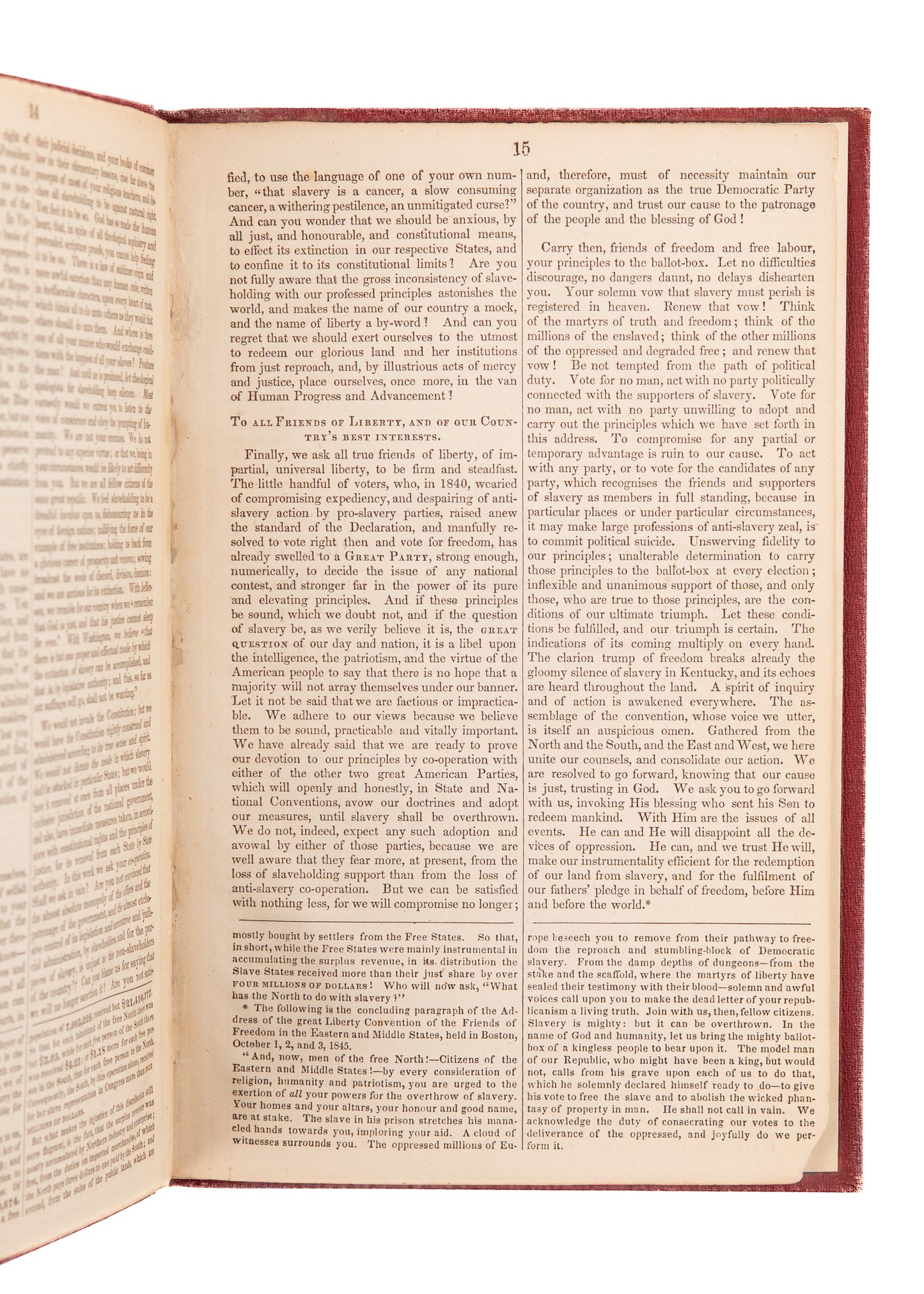Specs Fine Books
1845 SLAVERY - ULYSSES S. GRANT. Rare Anti-Slavery Society Speech Owned by Civil War General & American President
1845 SLAVERY - ULYSSES S. GRANT. Rare Anti-Slavery Society Speech Owned by Civil War General & American President
Couldn't load pickup availability
Rare 1845 Salmon Chase Anti-Slavery Address Signed by Ulysses S. Grant.
A very fine item, and potentially a very early exposure of Ulysses S. Grant to abolitionist ideals.
The address itself is scarce, a copy having just sold at Swann with a hammer of $2,375 with commissions. The present example then with the superb addition of being signed on the upper left of the title by "U. S. Grant." Then, seemingly in his own hand in the upper right corner of the title, "1845." If Grant did in fact own this in 1845 and not acquire it later, it would be one of the earliest instances we know of where he interacted with the abolitionist cause.
Grant has historically been viewed as not overly political, approaching the Civil War largely from the perspective of preserving national integrity more than as an anti-slavery idealist. Or, perhaps he was quieter about his convictions, but more informed and exposed than thought and the present little document provides some context for his views.
Grant was born in Ohio [1822] and graduated West Point in 1843. By 1846, he was serving with the Army in the Mexican American War. The address of Salmon Chase here offered with Grant’s inscription, spent a significant amount of time dealing with the Annexation of Texas and the implication of the Annexation for the Abolitionist cause. It is possible Grant saw his participation in the Mexican American War as more directly tied to ideas involving slavery than previously thought, or at least that he was more informed and interested in the inter-connectedness of the war with slavery than previously understood.
An absolutely wonderful item.
Chase, Salmon P. [Ulysses S. Grant]. The Address of the Southern and Western Liberty Convention, Held at Cincinnati, June 11 & 12, 1845. To the People of the United States. With Notes by a Citizen of Pennsylvania. New York. William Harned. 1845.
This address, additionally, helped propel Chase to national prominence, leading Lincoln to appoint him to his cabinet and ultimately appoint him to the Supreme Court, where he became Chief Justice.
Bound in later simple buckram, titled incorrectly as “Adress [sic] of U. S. Grant”. Probably c.1900-1920. Marbled endpapers with mid or late 20th century inscriptions. Cropped closely at bottom edge impacting extremities of bottom line, through rendering nothing illegible.
Share












